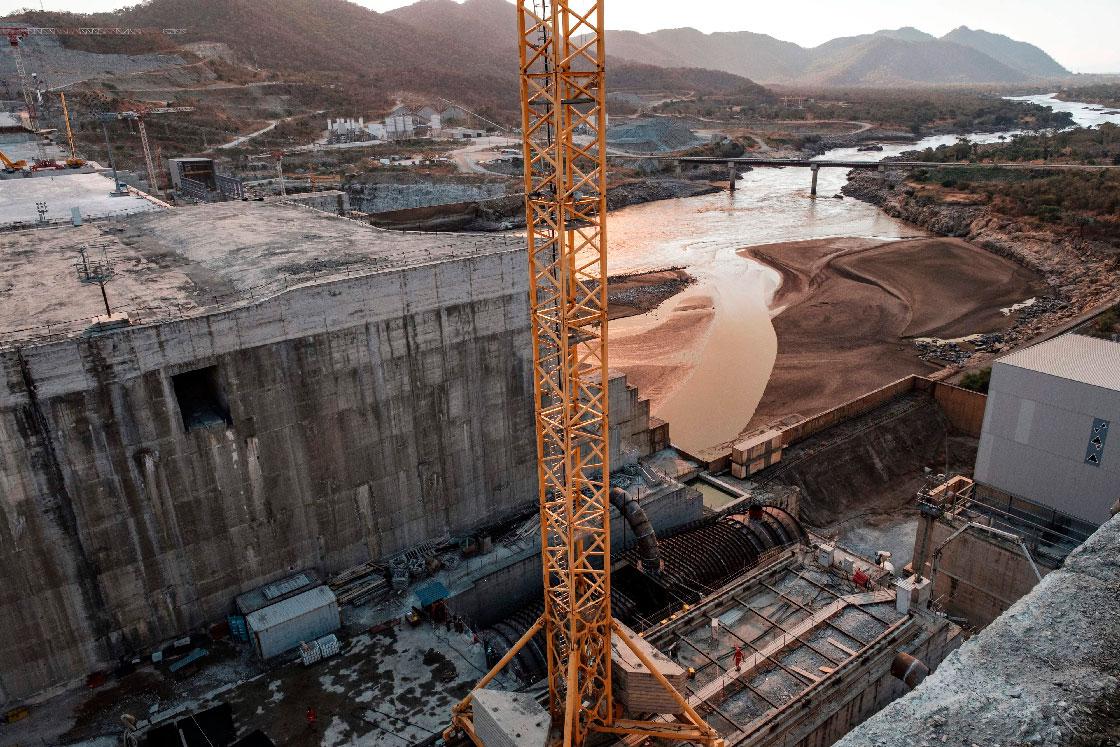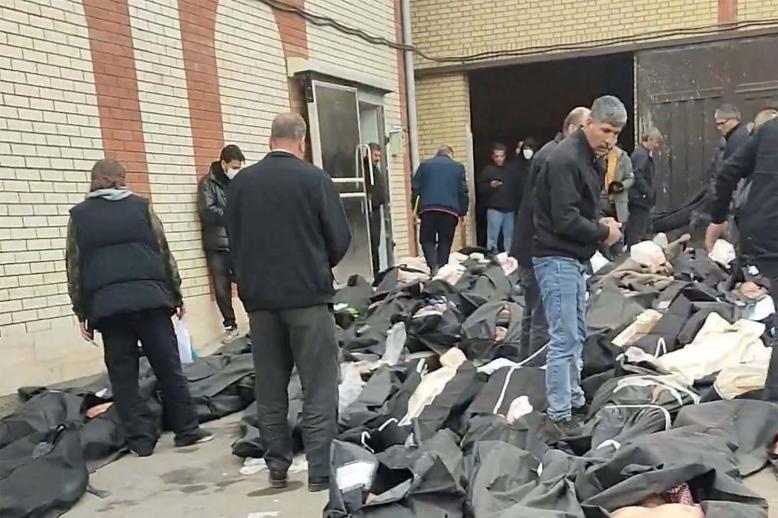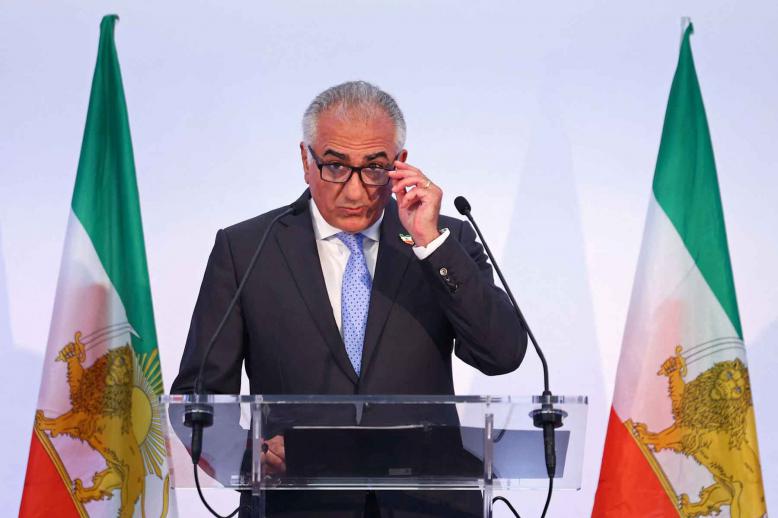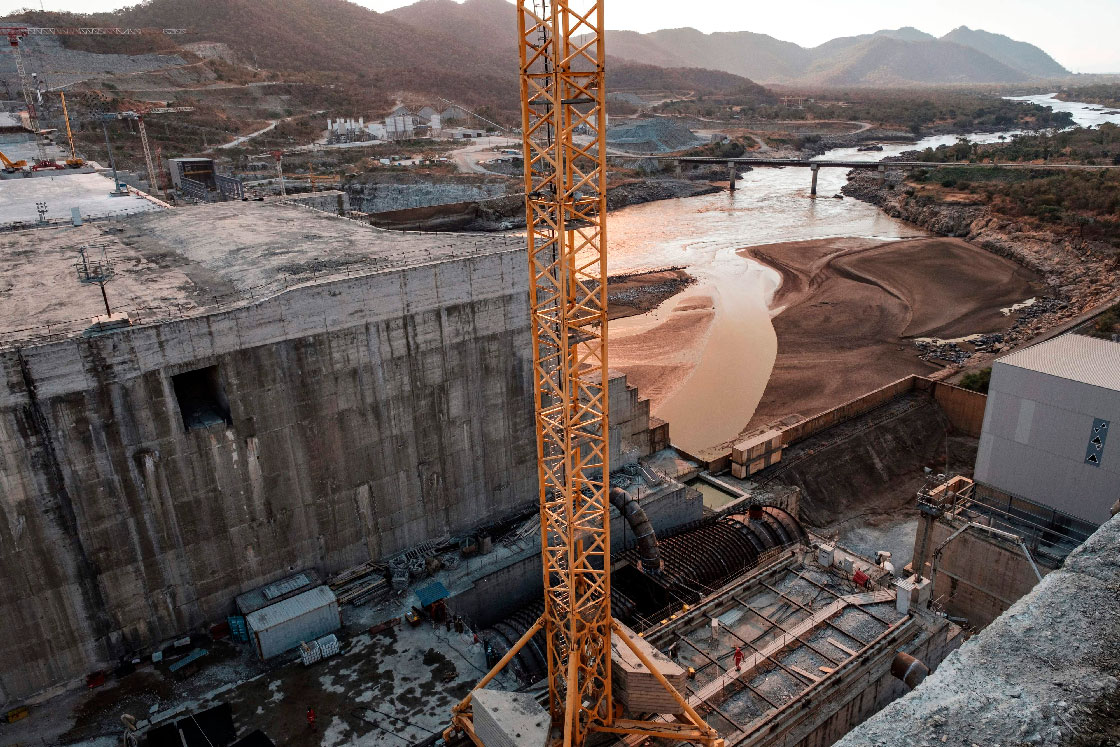Egypt, Ethiopia, Sudan remain deadlocked over Nile dam
ADDIS ABABA - Egypt, Ethiopia and Sudan remained deadlocked after two days of talks in their disputes over a giant hydropower dam on the Nile, though Cairo said it hoped the issues would be resolved by Jan. 15 in line with a deadline agreed with Washington.
"We did not reach an agreement today but we achieved clarity at least on all issues including the filling. We hope to reach a deal next week in Washington," Egyptian Water Minister Mohamed Abdel Aty told Reuters late on Thursday after two days of meetings in the Ethiopian capital Addis Ababa.
The countries are due to convene on Jan. 13 in Washington with the aim of resolving their disagreements by Jan. 15 over the filling and operation of the $4 billion hydroelectric dam that Ethiopia is building on the Nile.
They agreed to the timeline after a meeting in Washington with US Treasury Secretary Steven Mnuchin and World Bank President David Malpass in November.
However, after the meetings in the Ethiopian capital ended with no progress, Ethiopian Water Minister Sileshi Bekele accused Egypt of coming to the talks with no intention of reaching a deal.
"We didn't agree on the filling of the dam as Egypt presented a new proposal requesting the filling to be carried out in 12-21 years. This is not acceptable. We will start the filling of the dam by July," Sileshi told a news conference.
Egypt's Water Ministry, in a statement released late on Thursday, said that despite its delegation's attempts to “narrow differences” among the three countries, the Ethiopian government failed to prove that it would take all necessary precautions to ensure that its dam will not affect Egypt's water supply, especially in times of drought.
The dispute over the filling and operation of the massive dam has sparked a diplomatic crisis between Egypt and Ethiopia, who both see existential threats in each other's positions on the project.
Cairo fears the Grand Ethiopian Renaissance Dam (GERD) will restrict supplies of already scarce Nile waters on which its population of more than 100 million people is almost entirely dependent.
Addis Ababa denies the dam will undermine Egypt's access to water and says the project is crucial to its economic development, as it aims to become Africa's biggest power exporter with a projected capacity of more than 6000 megawatts.
One diplomat close to the talks said Ethiopia did not offer sufficient guarantees on water reserves.
"Ethiopia is not willing to commit to any meaningful mitigation safeguards including during extended drought, therefore there was no prospect for an agreement. Next step is going to (Washington)," he said.
Last year, Egyptian President Abdel Fattah el-Sissi had pleaded to the United States and the international community to mediate a solution to the ongoing Nile dispute. Foreign ministers of the three Nile Basin countries had met in Washington DC in November and agreed to resolve the matter by mid-January.
If the dispute is not resolved by Jan. 15 the nations will have several options to resolve the dispute, from using an international mediator to involving the heads of states, under the deal the countries reached in Washington.
Existential threats
The Grand Ethiopian Renaissance Dam is a 145-metre-high, 1.8-kilometre-long concrete colossus that is set to become the largest hydropower plant in Africa. The project is designed to light up Ethiopia and the wider Horn of Africa region.
Ethiopia is striving for universal electricity access by 2025, though currently more than half the population of 110 million lives without it.
Across Ethiopia, poor farmers and rich businessmen eagerly await the more than 6,000 megawatts of electricity officials say it will ultimately provide. Thousands of workers toil day and night to finish the project, even as Ethiopian negotiators remain locked in talks over how the dam will affect its downstream neighbours.
The current impasse is rooted in Cairo's fears that the dam could bring water and food insecurity for millions of Egyptians.
Ethiopians working at the dam site say they are doing their best to focus on the task at hand, though they bristle at suggestions that their country is overstepping in its bid to harness the Blue Nile for its development.
"When we do projects here it's not to harm the downstream countries," deputy project manager Ephrem Woldekidan told AFP news agency. "There is no reason that the downstream countries should complain (about) it because this is our resource also."
The Nile River's two main tributaries - the Blue and White Niles - converge in the Sudanese capital Khartoum before flowing north through Egypt toward the Mediterranean Sea.
Egypt depends on the Nile for about 90 percent of its irrigation and drinking water, and says it has "historic rights" to the river guaranteed by treaties from 1929 and 1959.
Tensions have been high in the Nile basin ever since Ethiopia broke ground on the dam in 2011. The International Crisis Group warned last March that the countries "could be drawn into conflict" given that Egypt sees potential water loss as "an existential threat".
The biggest initial hurdle is the filling of the dam's reservoir, which can hold 74 billion cubic metres of water. Egypt is worried Ethiopia will fill the reservoir too quickly, reducing water flow downstream.
After a round of negotiations in Sudan last month, Sudanese irrigation minister Yasser Abbas said there had been "progress" on the issue but no breakthrough.
Kevin Wheeler, an engineer at the University of Oxford who has studied the dam, said he was hopeful a deal on the filling period could be reached by January 15, but that additional issues would emerge down the line.
"Coordinated operations between the reservoirs along the Nile are likely to be an ongoing discussion that may continue for years, decades, and centuries to come, particularly as populations grow, development continues, and global climate patterns continue to change," Wheeler said.
Push for power
The US-based NGO International Rivers has accused Ethiopia of disregarding the dam's environmental impacts, which remain understudied. It has also allegedly caused the displacement of thousands of farmers since work on the dam began.
The group has voiced concern about "great degradation" that, along with changing weather patterns due to climate change, could "result in irregular episodes of flooding, drought and mudslides".
Ethiopia has responded to such statements by noting that a study group including experts from Ethiopia, Egypt and Sudan has been tasked with assessing social and environmental impacts.
Meanwhile, officials in the Ethiopian capital Addis Ababa are focusing on the country's push for power. Even in Addis, power is patchy, and the city suffered weeks of blackouts during the most recent period of electricity rationing in May and June 2019.
Dawit Moges, head of a medical laboratory, said the cuts drove up his generator costs and, because they were not predictable, led to delayed results and unreliable blood sample readings.
"You've collected specimens, you're processing the specimens and boom, there is no power. All those specimens, you may not be sure about the results," he said, adding that he hoped the dam would yield a steady power supply.
"I want it to be completed as soon as possible and go into production."
The same is true for Harsh Kothari, head of Mohan Group, which runs five manufacturing units producing everything from shoes to electric cables and barbed wire.
Reliable electricity would make his business "a lot more competitive" and enable it to grow, Kothari said.
Back at the dam site, this kind of talk about how the project could fuel prosperity from farms to factories across Ethiopia is exactly what motivates Workey Tadele, a radio operator, to go to work every day.
"We're working here for the benefit of our country," she said. "If we have electricity, then we'll have a better future."
"Our country has a huge problem with electricity," Kafule Yigzaw, a 22-year-old worker on the Ethiopian Dam project, told AFP recently while taking a break from reinforcing steel pipes that will funnel water from the Blue Nile River to one of the dam's 13 turbines.
"This is about the existence of our nation and, in my opinion, it will help us break free from the bondage of poverty."






